RUGBY CHAMPIONSHIP 2019: ANALYSIS
Rassie Erasmus has golden chance to tackle transformation
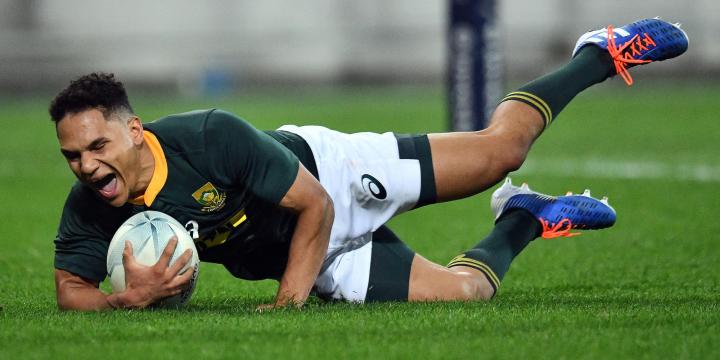
After Herschel Jantjies’ late try snatched a 16-16 away draw for the Springboks against New Zealand on Saturday, coach Rassie Erasmus deserves credit. By building squad depth, he has created a healthy competitive environment. Erasmus has also set himself up to deal with transformation in a way none of his predecessors have. The key question is whether he realises it.
As is usually the case when the Springboks are in form, South African rugby supporters were in high spirits heading into the clash against the All Blacks. Erasmus was spared an intense backlash for selecting a starting XV featuring just three players of colour.
The mood could so easily have changed had South Africa lost on Saturday despite dominating the early stages of the game. It is ironic, to say the least, that two players of colour linked up for the try which saved the draw.
Replacement scrumhalf Jantjies got on the end of Cheslin Kolbe’s clever chip from South Africa’s right wing ahead of opposite number Aaron Smith. It wasn’t an easy ball to hold on to but the finish was simple once he had.
It would be irresponsible, however, to claim that Erasmus’ team selections were racist or that the white players he chose didn’t perform. The 46-year-old is still experimenting ahead of the World Cup and the team is responding well to his rotation policy.
Having sent much of his squad to Wellington early to acclimatise ahead of the showdown with the All Blacks, Erasmus picked a starting XV featuring eight players of colour against Australia. Many of these were youngsters looking to make their mark. They did exactly that with a resounding 35-17 win.
Erasmus then made 12 changes to his 15 ahead of the All Blacks battle — a move which had no doubt been planned in advance. The question is: now that he has seen two almost completely different Springbok teams put in good performances, how is he going to combine them at the World Cup?
Heyneke Meyer’s Springboks were far from the worst in terms of results. Yes, there was the embarrassing defeat to Japan, but a third-place finish at the 2015 World Cup was far from disastrous. In the years leading up to the tournament, the Springboks were generally the strongest challengers to an All Blacks outfit very much at its peak.
However, neither Meyer nor his legacy lasted beyond the last World Cup simply because he failed to address transformation. Erasmus has stated his intention to continue as director of rugby at SARU even if not in the Springbok head coaching role after the World Cup. If he has his wits about him, he will not make the same mistake the last coach at a Springbok World Cup campaign did.
The equation is simple: Erasmus has a contract as director of rugby until the 2023 World Cup. As he himself saidearly in his spell in the head coaching hot seat: “It is what it is, and we must work around that.” His personal views about quotas and his squad are anyone’s guess, but he has to adapt to SARU’s policies.
Fortunately for Erasmus, he now knows beyond doubt that he has plenty of capable players of colour at his disposal. Herschel Jantjies, Elton Jantjies, Cheslin Kolbe, S’bu Nkosi, Warrick Gelant, Makazole Mapimpi, Trevor Nyakane, Tendai Mtawarira, Bongi Mbonambi and Lukhanyo Am have all started matches during this Rugby Championship and performed up to Springbok standards.
Erasmus’s mandate for the time being is to ensure that 50% of his players in his matchday 23s this year are of colour. However, if he wants to make life easier for himself further down the line, he must focus not only on meeting minimums, but also nurturing the players of colour available to him.
Giving Siya Kolisi the Springbok captaincy was a huge step in the right direction. Consistently selecting truly representative sides at the World Cup before anybody bangs on his door and demands as much would be another.
If he succeeds in appeasing rugby pragmatists and activists alike, then two- thirds of Erasmus’ work will be done. He will still need to play a part in building rugby systems from grassroots level up which can find a sustainable answer to the transformation question. However, by the time he gets his second go as director of rugby at a World Cup, the Springboks might finally have put the quota debate to bed.
It is reassuring sometimes to remember that South Africa is far from the only country in which sport is riddled with politics and inseparable from a history of oppression.
Thankfully, whenever we need reminding with a World Cup just around the corner, Australia’s athletes always seem to answer our call. Kurtley Beale was at the heart of a scandal not long before the last Rugby World Cup after his sexist abuse of Wallabies staff member Di Patston. This time, Israel Folau is the elephant in the Wallaby room after destroying his relationship with Rugby Australia through a string of unrepentant homophobic social media posts.
Not unlike their national cricket team, the Wallabies have always found a way to adapt to the chaos. They picked up their first win since the termination of versatile fullback Folau’s contract on Saturday, downing Argentina 16-10 at Brisbane’s Suncorp Stadium. There was even a remarkable feel-good story as Christian Leali’ifano returned to the international stage following a three-year hiatus featuring a battle with blood cancer.
However, in pure rugby terms, Michael Cheika’s men are some way off the standard of the team which made the World Cup final four years ago, shortly after his appointment as head coach. They may be a good team on their day even without Folau, but it takes greatsides to win World Cups. It is difficult to see Australia reaching that standard in what must surely be one of the most competitive eras in rugby history.
At least they managed to do what they needed to on Saturday, dominating Los Pumas at scrums. Argentina had the better of territory in both halves but failed to capitalise.
They, too, are not quite yet at World Cup-winning level. Mario Ledesma’s men put up a good fight at home to New Zealand last weekend and have now given Australia a scare, but they have not quite yet mastered the art of ending up on the right side of fine margins.
Even South Africa have a lot to learn in this respect. If the Springboks had made as many errors in the first half of their clash with New Zealand as the All Blacks did, they would have been punished.
But, as was the consensus in the SuperSport studio post-match, at least the Springboks know where they need to improve.
It will be interesting to see whether or not Rassie Erasmus tinkers with his starting XV once more for the tournament finale against Argentina in Salta at 21.40 SAST on 10 August. First, Australia will host New Zealand in Perth at 11.45 AM that day. DM
Rugby Championship 2019: Round two in pictures
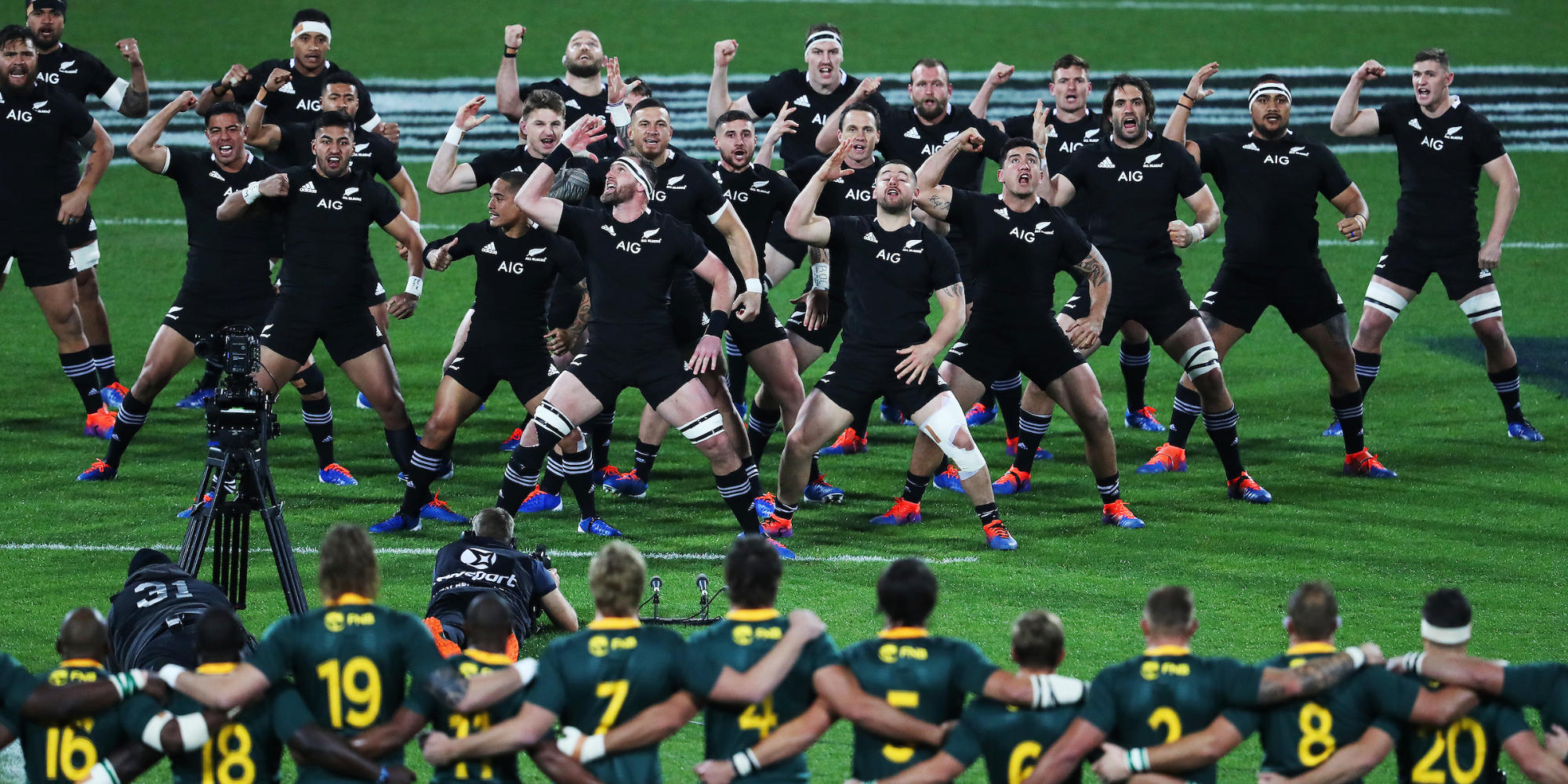
All Blacks perform the haka ahead of the 2019 Rugby Championship match between The All Blacks and the Springboks in Wellington. (Photo: Raghavan Venugopal)
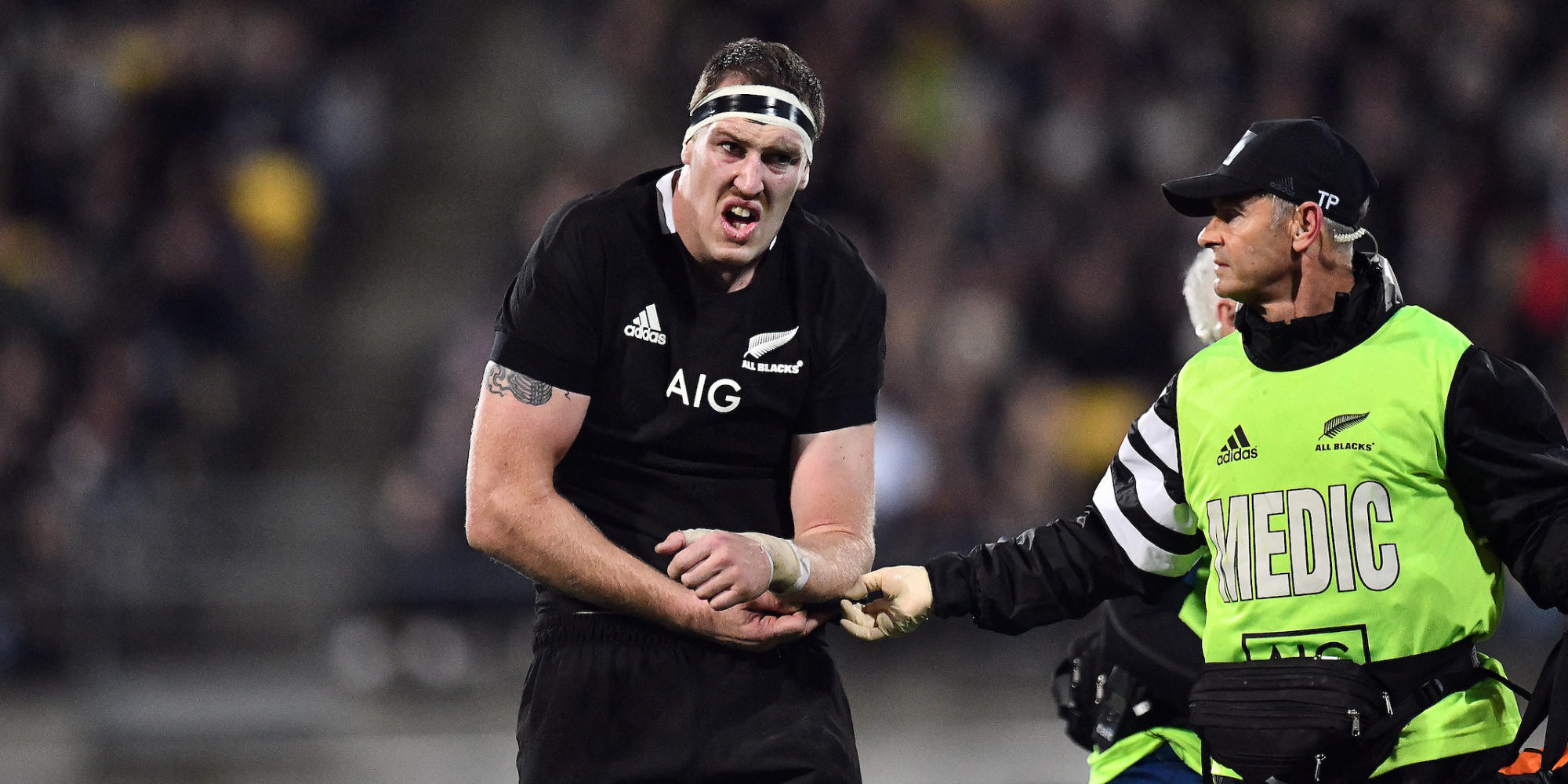
Brodie Retallick leaves the field with an injury during the 2019 Rugby Championship match between The All Blacks and the Springboks in Wellington. (Photo: Raghavan Venugopal)
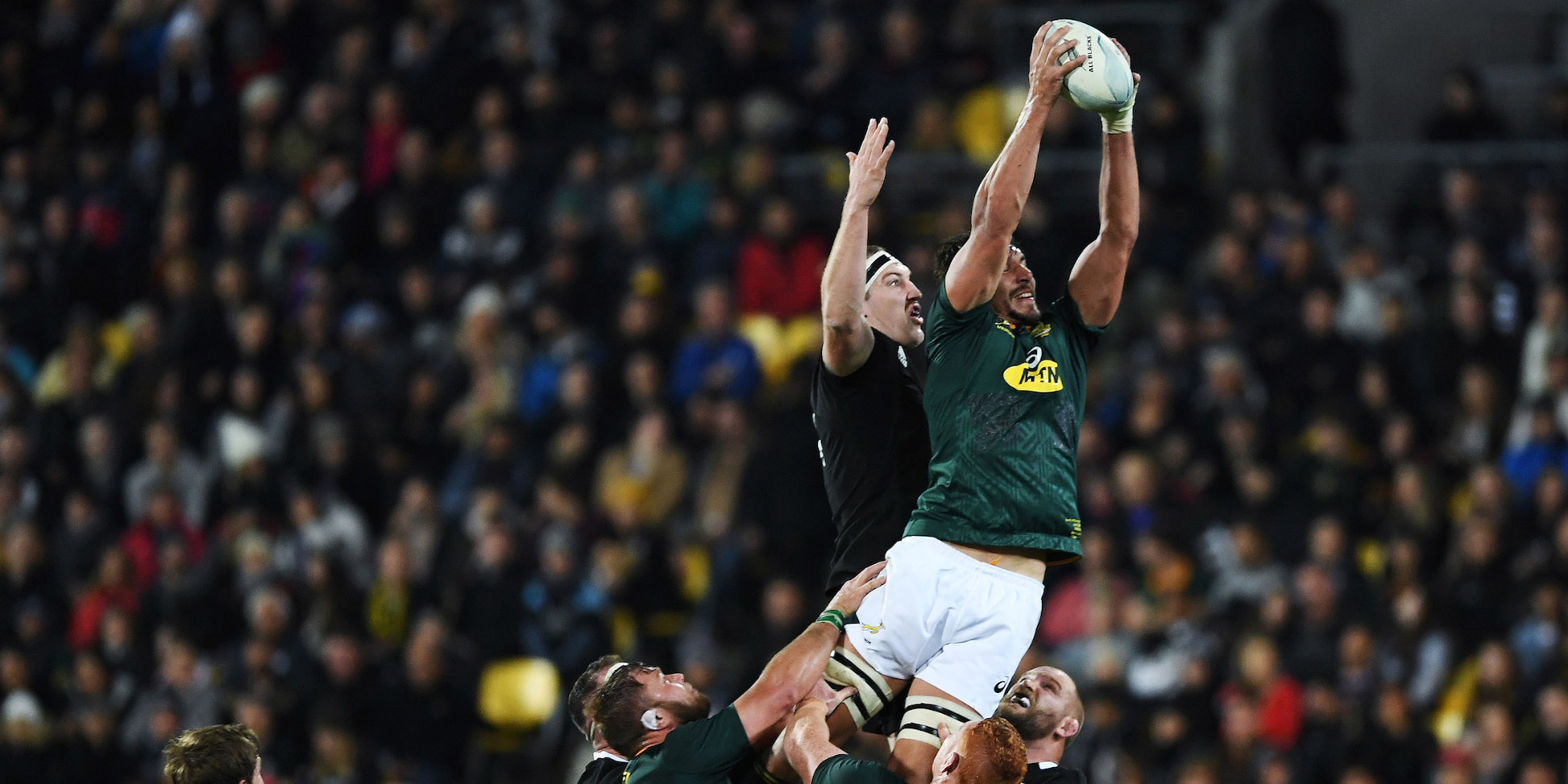
Springbok lock Eben Etzebeth catches the ball in Saturday’s 16-16 Rugby Championship draw with the All Blacks, 27 July 2019. (Photo: Andrew Cornaga)
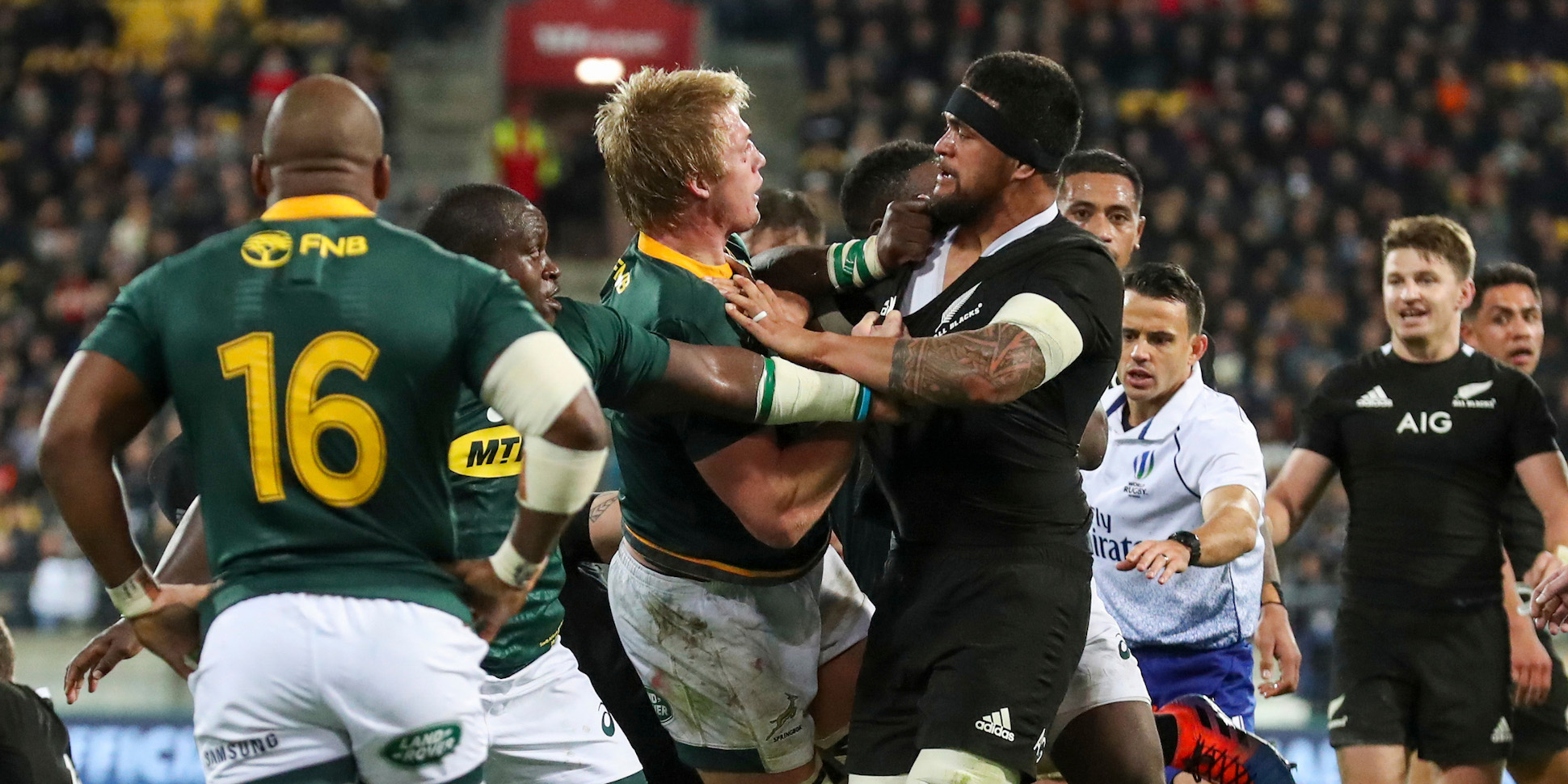
Pieter-Steph du Toit and Vaea Fifita square up to each other during New Zealand’s 16-16 Rugby Championship draw with South Africa on Saturday at Wellington’s Westpac Stadium, 27 July, 2019. (Photo: John Cowpland)
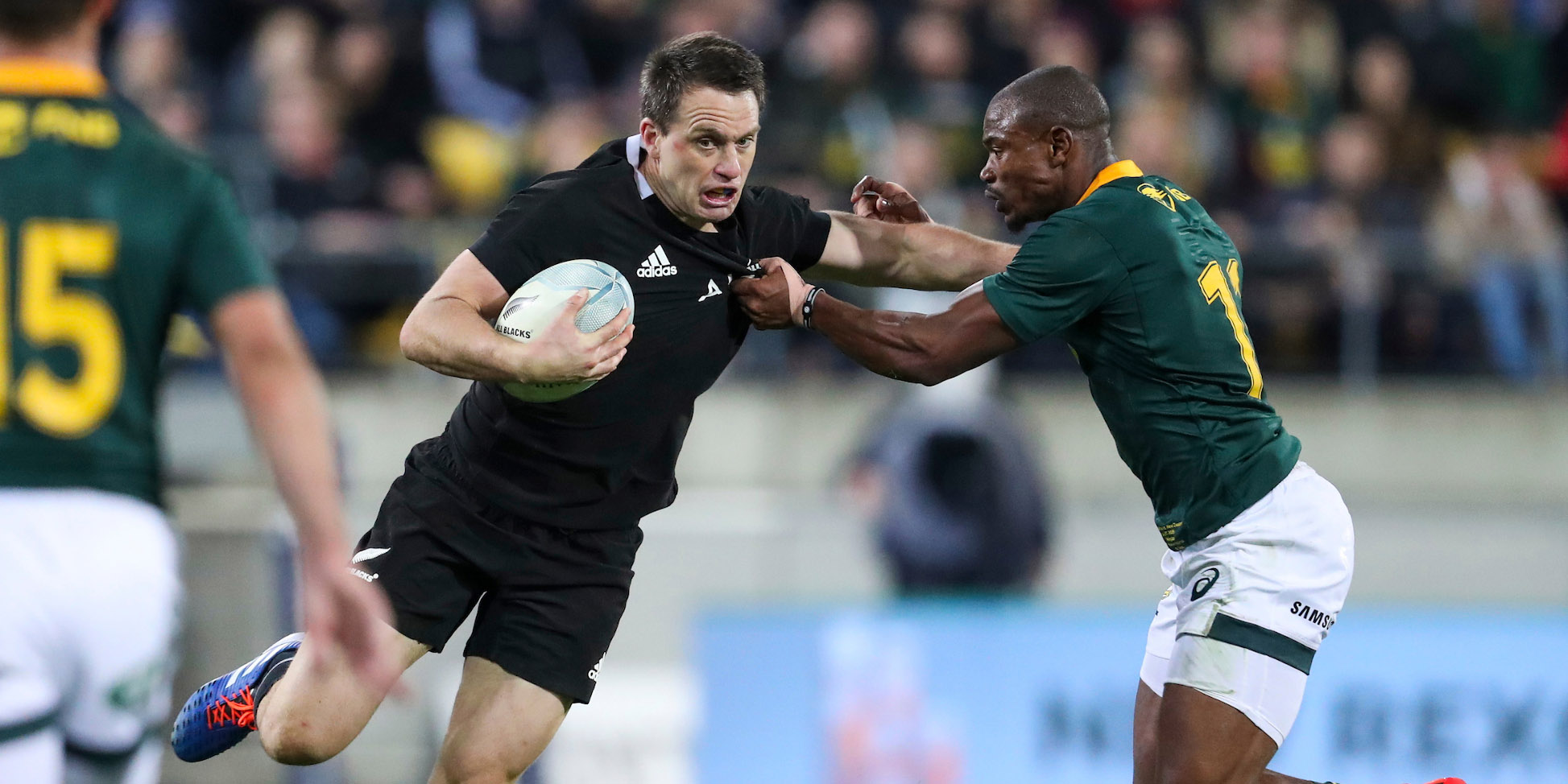
South Africa’s Makazole Mapimpi looks to tackle New Zealand’s Ben Smith. John Cowpland, Saturday 27 July, 2019. (Photo: John Cowpland)
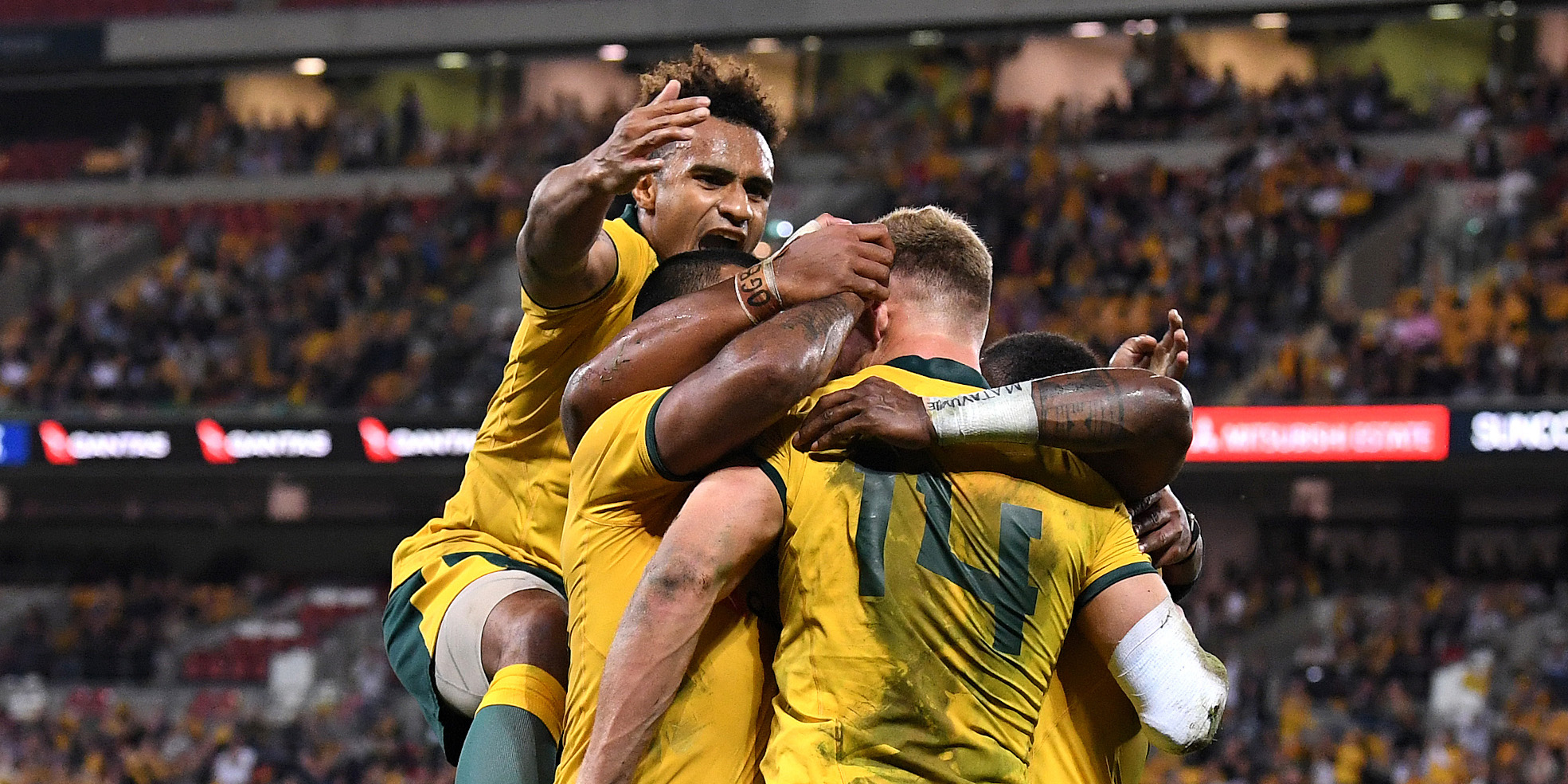
Will Genia of the Wallabies (left) celebrates a try with teammates during the Rugby Championship match between Australia and Argentina at Suncorp Stadium in Brisbane, Australia, July 27, 2019. (Photo: EPA-EFE/DAN PELED)
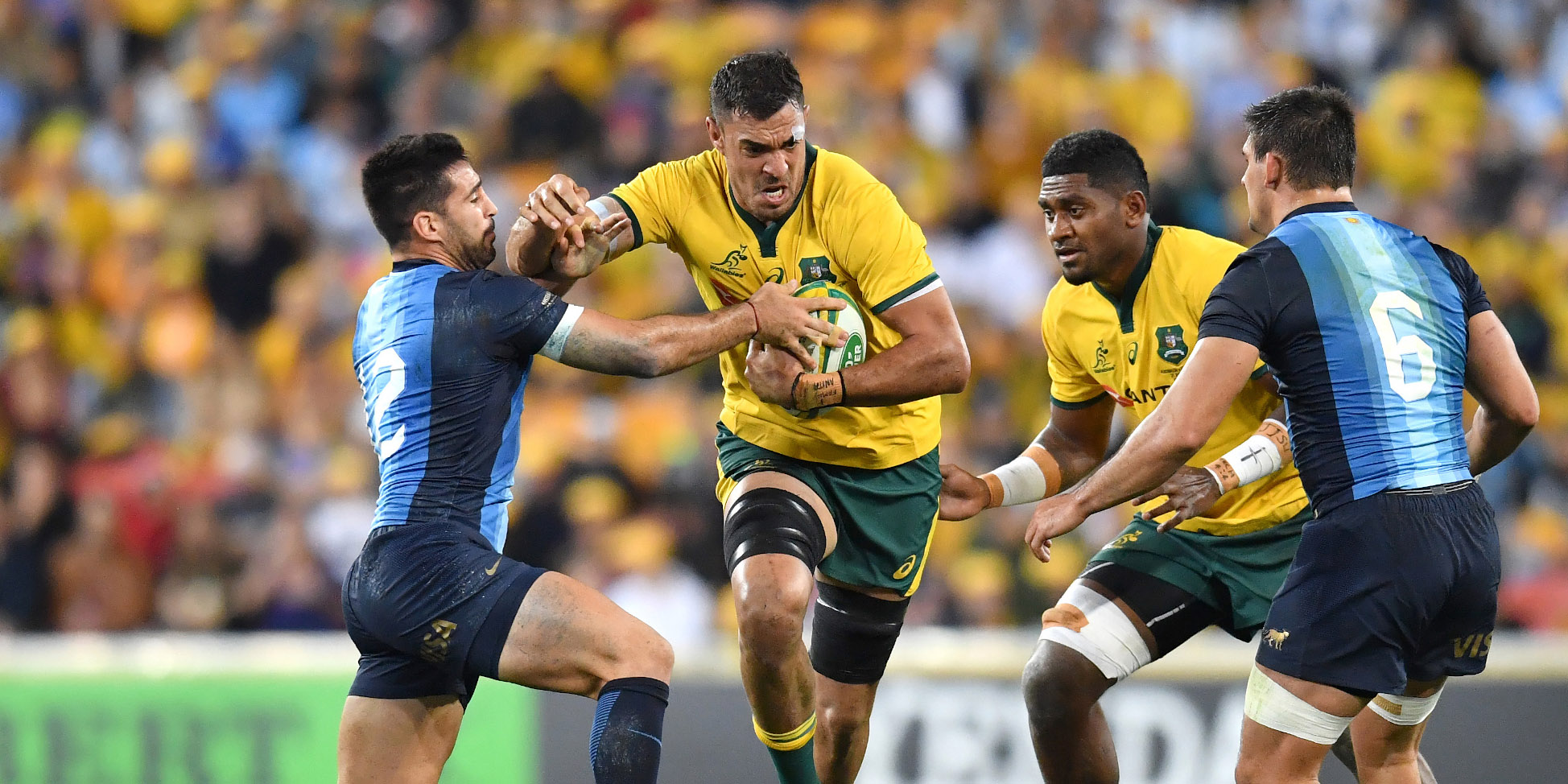
Rory Arnold (2nd from left) of the Wallabies is tackled by Jeronimo De La Fuente (left) of the Pumas during the Rugby Championship match between Australia and Argentina at Suncorp Stadium in Brisbane, Australia, July 27, 2019. (Photo: EPA-EFE/DARREN ENGLAND )
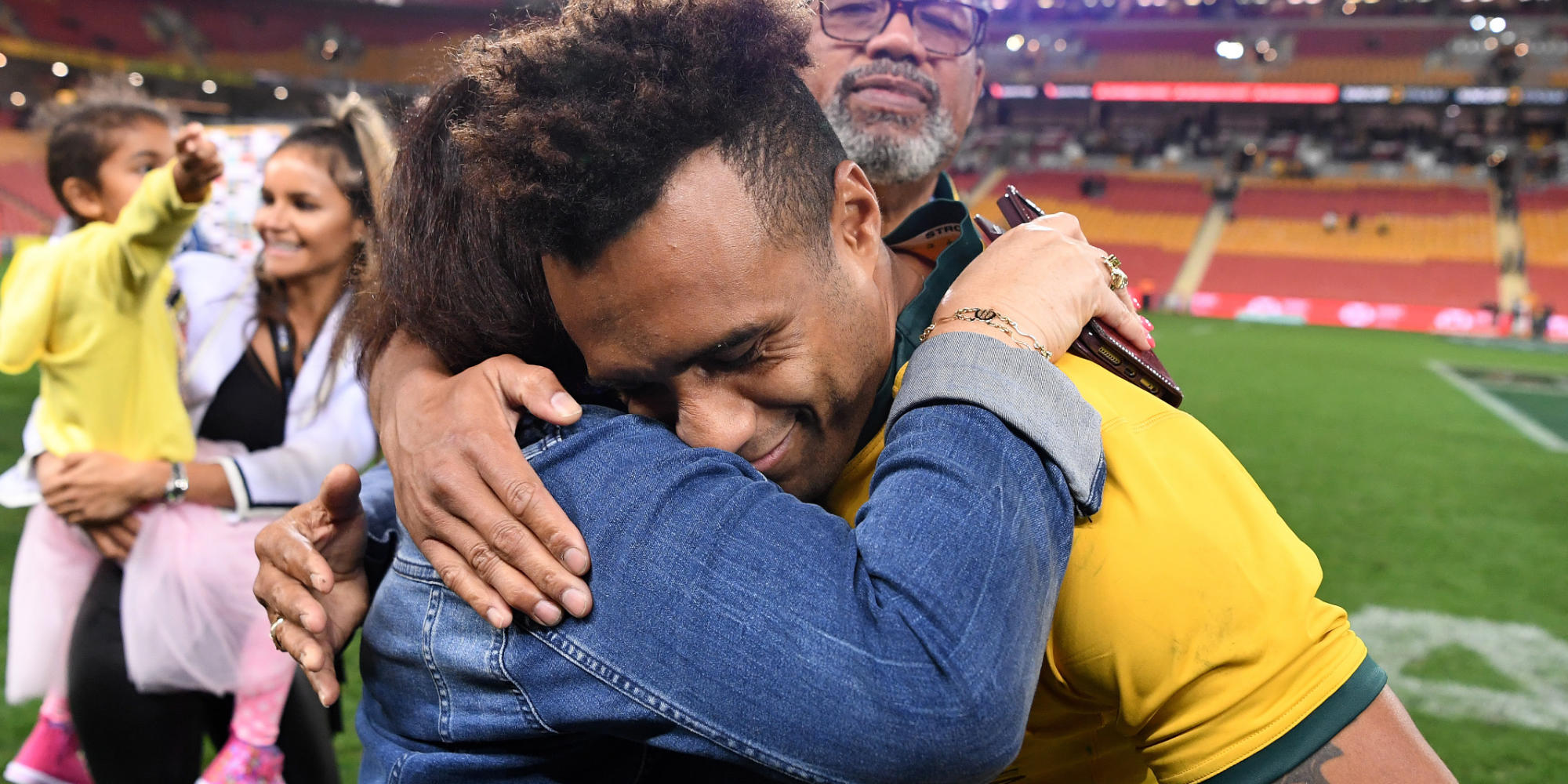
Will Genia of the Wallabies hugs his mother Elizabeth after playing his last game at Suncorp Stadium whre the Wallabies defeated defeated Argentina in a 2019 Rugby Championship match. (Photo: EPA/DAN PELED)


















